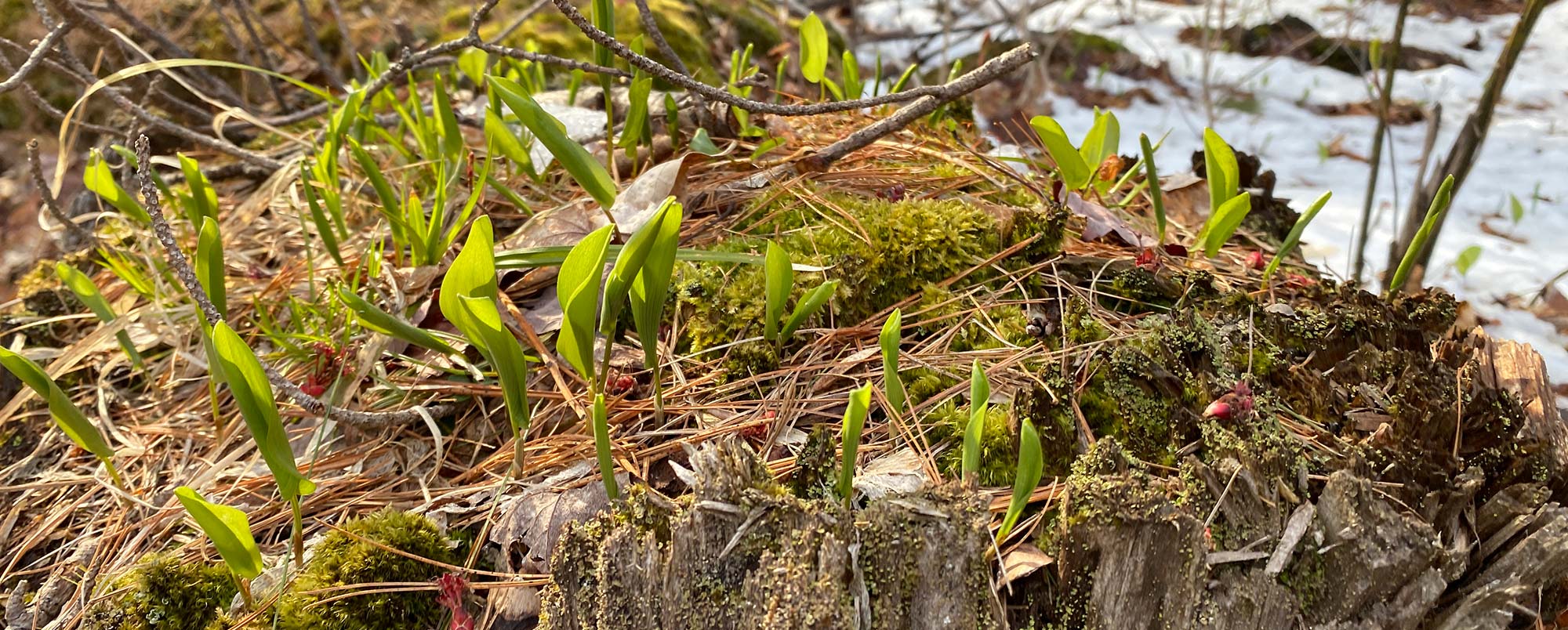Red and Georgia were sitting on the lip of a Long Trail lean-to together, while the rest of us were massed on a nearby picnic table eating lunch. Red was a 20-something Irish-looking kid with a kind face. Georgia was his mutt dog; piebald and floppy-eared with beautifully expressive brown eyes. Gentle. Well behaved.
Red had told us that he was in no rush to finish the Long Trail. He said Georgia’s pads were raw so they were taking it slow. He was letting her set the pace. Georgia had a little trail pack she wore draped over her mid-section but it was empty; Red was carrying her eight pounds of dog food himself. While we were talking the dog lay in repose against his leg, eyes closed. Red was scratching absentmindedly around her ears.
Eventually our lunchtime conversation got around to “what do you do?”, at which point everyone dropped their career choices like tombstone epigraphs. Someone said “insurance salesman.” Another, “neurosurgeon.”
When it got to Red he said he didn’t do anything. He said he didn’t have a job because he couldn’t figure out what he wanted to do. When he said this, his face cracked a little bit in despair. This was not the confession of a lazy man or a carefree gentleman of privilege. No, Red’s clothes were stretched and dirty and his pack was old and while the neurosurgeon ate an expensive freeze-dried lunch Red snacked on handfuls of bulk peanuts from a double-lined supermarket bag. Rather, it was obvious that Red was a searcher like so many young people are, trying to reconcile Oh the Places You’ll Go with an often cruel and material world; trying to find inner peace as the expectations of adolescence crash into the mundane rhythms of adulthood.
As I listened to him I thought of at least four 20-somethings I know who were going through some version of this struggle. And I thought of myself at that age.
Someone said: “You’re a hiker; that’s something.”
“Well what am I going to do when I get to Canada?”
“Turn around and walk back.”
He smiled at this, but it was the kind of humoring smile you give your mother when she gives you advice you don’t really want to hear.
I don’t know if I’m making too much of a generalization, but it seems to me that this kind of malaise is getting worse in our culture. A lot of kids are being driven through school while being told it’s college-or-bust, at which point some bear the baggage of having gone bust while the rest rack up what has collectively amounted to a trillion dollars in student debt. (That’s a real number.) In college, everything is presented in huge scale. Students are molded to become powerful global citizens who are going to change the world, which doesn’t leave a lot of room for going back to your small New England town and finding peace in the micro.
While all of this is going on young people are being bombarded by consumerism and technology in an unprecedented way. Facebook has turned the verb “to like” from a state of mind into a consumer action; a “friend” from a person we have a beer with to a number that quantifies our vanity. The internet has given us the power to contract our worldview, to star in our own movies, to photograph ourselves endlessly. As the writer Jonathan Franzen once pointed out, “the ultimate goal of technology, the telos of techne, is to replace a natural world that’s indifferent to our wishes – a world of hurricanes and hardships and breakable hearts – with a world so responsive to our wishes as to be, effectively, a mere extension of the self.” It’s no wonder kids are hitting a wall when they leave college puffed up with a global sense of importance and running into the real world, which is provincial and unflinching and hard.
Anyway, it’s easy to recognize all these forces in hindsight, but harder to do it when you’re living them. Easy to opine in a blog, but harder to share your insight with a flesh and blood person who’s not in a great mind to listen.
Getting back to Red, the irony, of course, is that he had all the pieces to the puzzle right there. We get over the angst of our twenties by surrendering parts of our self. We come to see work not only as a way to earn money and survive but a place to get over our toxic self-absorption. A day spent swinging a hammer or driving a skidder or editing a story can contain the same therapy as a day spent walking 20 miles on the Long Trail. We get over our narcissism by loving somebody selflessly – carrying dog food for a piebald mutt; changing the diaper of a crying child; seeing the flaws in a partner and loving them for the flaws. We spend time in the woods – a place that’s indifferent to our very existence – and we find peace in this.
The hiker rose and the dog struggled to her feet and stretched stiffly. Those warm brown eyes held the kind of love that would follow you to the end of the earth. They headed north, and as we watched them leave I think we all envied Red that love. At the same time, we thanked our lucky stars that we’d made it through that phase in our lives mostly unscathed.


Discussion *